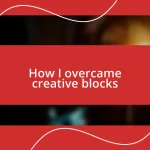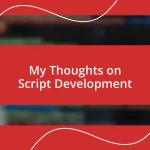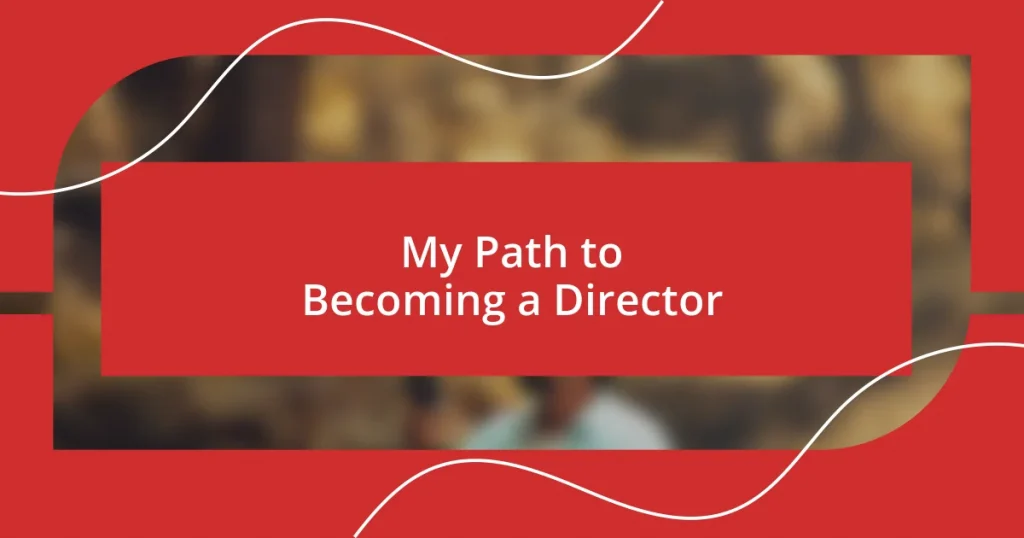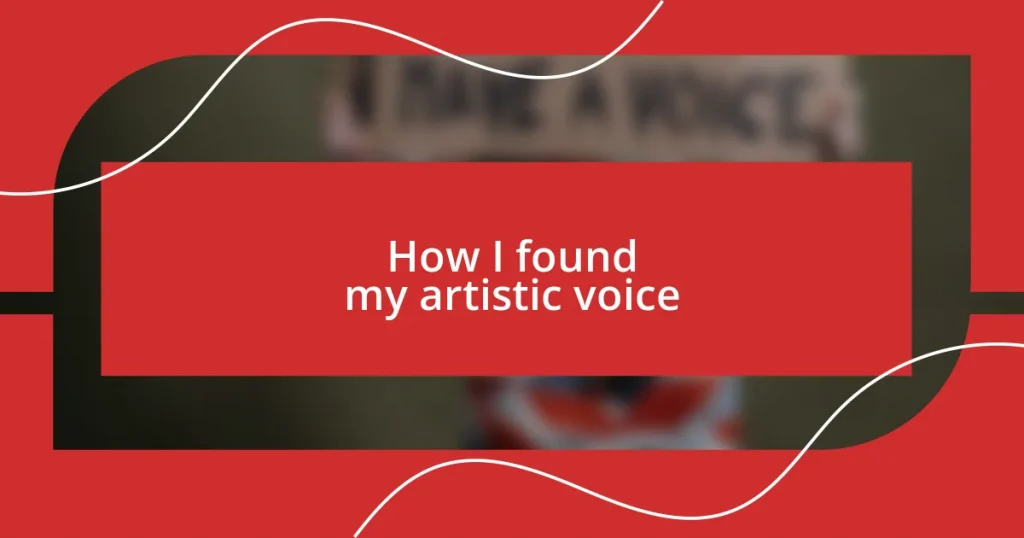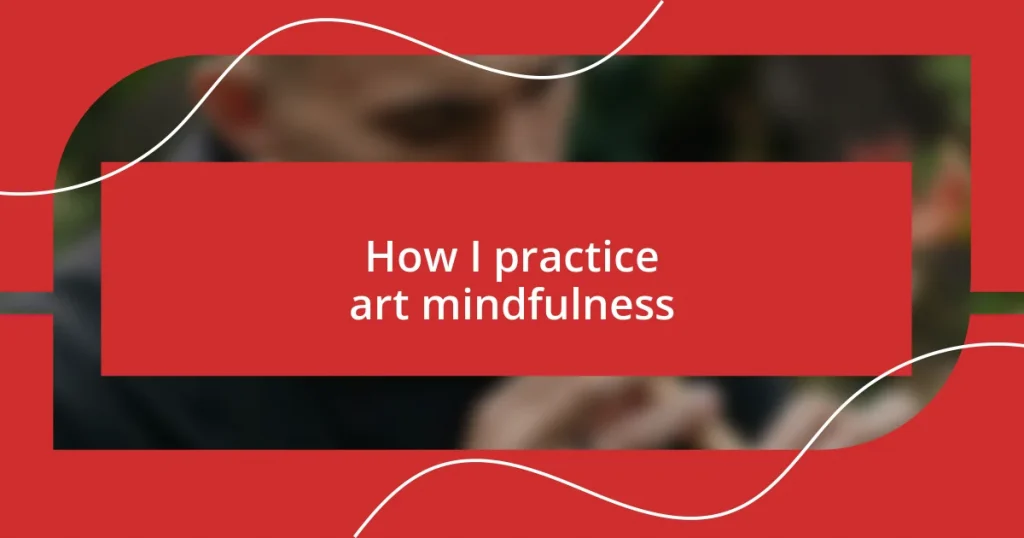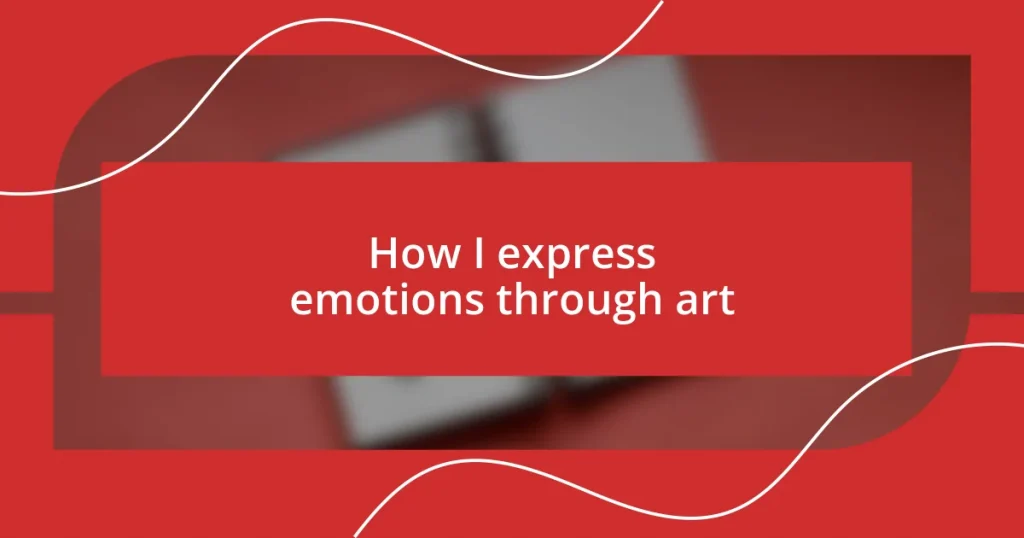Key takeaways:
- Essential skills for directors include leadership, effective communication, and strategic thinking, all contributing to a united and adaptable team.
- Gaining hands-on experience through various production roles, such as a production assistant and directing projects, is vital for developing skills and understanding team dynamics.
- Building a professional network through industry events, mentorships, and social media is crucial for creating opportunities and fostering collaboration in the filmmaking industry.
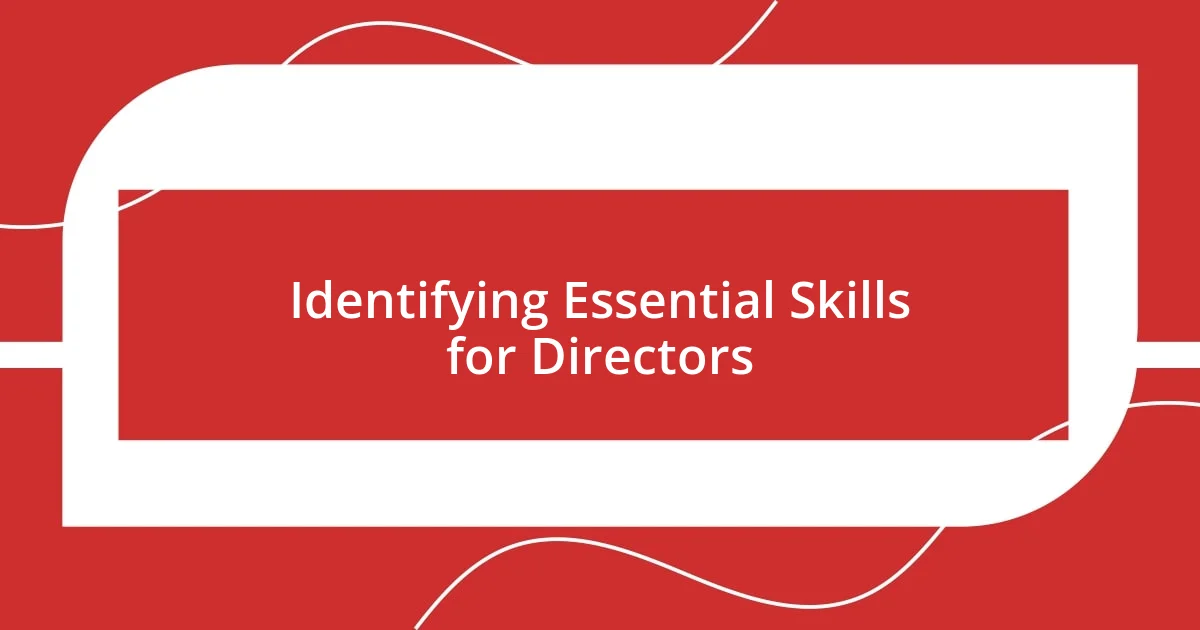
Identifying Essential Skills for Directors
When I think about the skills that define a successful director, leadership always comes to mind. A director must inspire their team and cultivate an environment where creativity can flourish. I’ve witnessed directors who excel in this area—those who lead with empathy, making everyone feel their contributions matter. Isn’t it powerful when a team feels united under a shared vision?
Another essential skill is effective communication. A director must articulate ideas clearly while also being a keen listener. I remember a time when a director I worked with encouraged open feedback during our meetings, creating a space for honest dialogue. This not only enhanced our projects but also built trust within the team. How often do you engage with your colleagues in a way that gives them a voice?
Finally, strategic thinking is crucial. A director must evaluate the big picture while also paying attention to the finer details. I once faced a project setback that required adaptability; it taught me how vital it is to foresee challenges and pivot accordingly. Have you ever found yourself in a situation where strategic foresight changed the outcome for the better?

Gaining Experience in Production
Gaining experience in production is a fundamental step on my journey to becoming a director. Early on, I found myself volunteering for various roles in student films. This hands-on learning wasn’t just about understanding technical aspects like camera angles or lighting; it also immersed me in the dynamics of collaboration. I remember working alongside a brilliant cinematographer who shared invaluable tips about visual storytelling, which opened my eyes to the power of visuals in conveying emotion. Have you ever had a mentor who transformed the way you see your craft?
My first significant role was as a production assistant on a short film. The pace was intense, and my responsibilities ranged from managing equipment to assisting actors. I felt a mix of excitement and nervousness, but it taught me about the intricacies of production. That chaotic day on set, when we scrambled to adjust a scene due to unforeseen weather changes, revealed the importance of adaptability. It made me appreciate how crucial every team member’s roles are. How might you handle unexpected challenges in your own projects?
As I moved up the ladder, directing a low-budget web series was a watershed moment. It tested my leadership skills and solidified my passion for storytelling. This experience allowed me to trial various techniques and see firsthand the impact they had on the audience. I learned the importance of feedback during the editing process, where each cut could drastically change the narrative. Have you ever felt the thrill of creating something that resonates with others?
| Experience Level | Description |
|---|---|
| Production Assistant | Hands-on role, gained insights into team dynamics and set operations. |
| Director of a Web Series | Led a small team, honed storytelling skills and learned the importance of viewer feedback. |
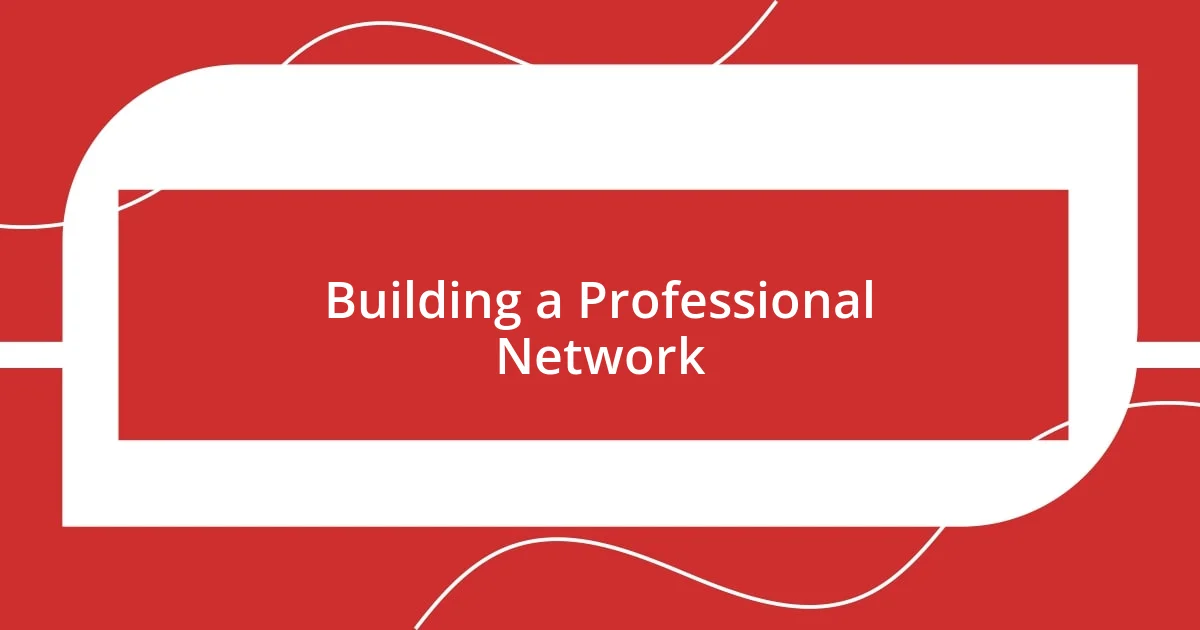
Building a Professional Network
Building a professional network is one of the most crucial elements in my journey to becoming a director. I can’t stress enough how important relationships are in this industry, which is often built on trust and collaboration. Early in my career, attending industry events and film festivals proved invaluable. I met people who ignited my passion and inspired my work. I still remember striking up a conversation with a director whose film I admired; that brief chat led to opportunities I never anticipated. Have you ever experienced a connection that opened unexpected doors for you?
Here are some effective strategies I’ve employed to expand my network:
- Attend industry events: Whether it’s a film festival or a panel discussion, getting face-to-face with people can spark collaboration.
- Join professional organizations: Being part of groups like a director’s guild helps you meet like-minded individuals.
- Utilize social media: Platforms like LinkedIn or industry-specific forums allow you to connect with others who share your ambitions.
- Volunteer for projects: Engaging with different teams helps you meet a spectrum of professionals and showcase your skills.
- Seek mentorship: Finding a mentor can provide guidance and introduce you to their network, amplifying your reach.
Each of these strategies has played a part in shaping my career. I’ve found that even a simple coffee chat can evolve into a cherished professional relationship. What strategies have you found useful for networking in your field?
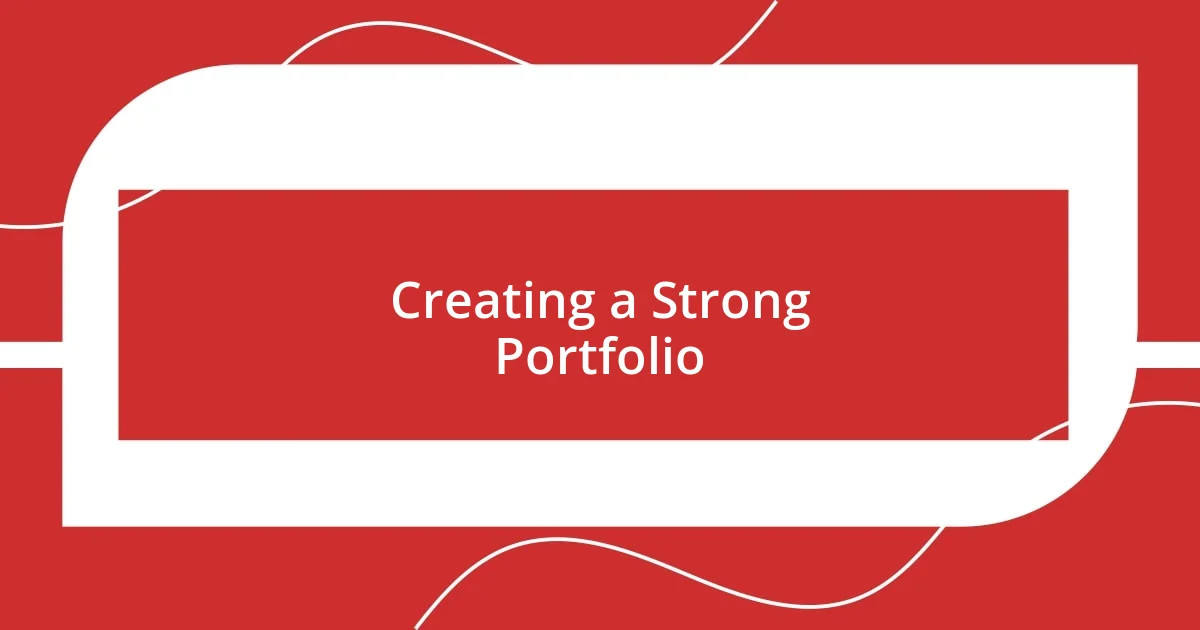
Creating a Strong Portfolio
Creating a compelling portfolio is essential in showcasing my journey and skills as a director. I remember my first attempt at compiling my work; it was daunting yet exhilarating. I included snippets from my student films, even if they weren’t perfect, because they represented a pivotal step in my development. Have you ever hesitated to show your earlier work, only to realize it tells your unique story?
As I honed my skills, I learned that a strong portfolio isn’t just about presenting finished projects. It also includes behind-the-scenes footage, script drafts, and even reflections on my creative process. This approach creates a narrative that potential collaborators can connect with. I once shared a behind-the-scenes moment where I struggled to direct a challenging scene. The vulnerability made my work relatable and sparked conversations with industry professionals who faced similar challenges. Can you think of a moment that made your artistic journey feel more human?
In addition to the content, the presentation of my portfolio plays a vital role. I’ve opted for a sleek, user-friendly website that serves as a digital calling card. Each project is accompanied by a brief synopsis and my role, highlighting my contributions. I recall the excitement of receiving positive feedback on my website from a filmmaker whose work I admired. It reinforced how investing time and energy in creating a polished portfolio can open doors. How do you envision your portfolio reflecting your unique voice and style?



